- Home
- Troy Denning
Crucible Page 7
Crucible Read online
Page 7
Pelias left the wicket door at once. There was great clamor inside, and the portcullis rose the span of three hands. I lost my grasp upon the bars and fell into the mud. Nor was this any pretense, for I was so delirious with my good fortune that I could not stand. Pelias himself crawled under the iron spikes and dragged me into the gloomy vault beyond. This was the first time I had ever passed through Candlekeep’s gates.
Pelias and another man laid me on a litter and started up through the darkness, leaving Agenor and the rest of their number to lower the portcullis and stand guard against Cyric. Soon we passed out of the vault and into the moonlight, and I saw that already we had climbed a small height, for I could turn my head and look out over the plain. The knoll where Most High Haroun and His Deadliness Jabbar had died lay a thousand paces distant, once again blanketed by the feathers of Kelemvor’s harbingers. Beyond that stretched a sea of waving grass so vast it made me dizzy.
The trail was narrow and steep, with many sharp bends. Still, my bearers ascended at a brisk pace, without the aid of lanterns or any illumination but the moon. They had passed this way countless times before and could have hiked it in a darkness as black as the Dark One’s soul. I, on the other hand, had never been on the trail, and my left eye opened wide as I saw the sheer fall that lay over the edge of my litter. As we climbed higher, I could not bear to watch the ground growing more and more distant. I closed my eye, but the ceaseless shifting of the litter only confirmed my suspicion that I was in danger of sliding off.
Nor did the journey help my injuries. The constant pitching and swaying made my battered head throb and spin, which upset my stomach and caused the wound in my belly to burn with a cold fire. But the pain made me strong in a way I had never before experienced; the more I suffered, the greater my energy. I could have risen from the litter and walked up the path on my own, had I not wished to seem a dying lunatic.
We rounded the tor and traveled for a time far above the crashing waves of the Sea of Swords. When at last we came around to the plain once more, my knuckles ached from grasping the litter. Then I glimpsed the lights of Beregost flickering far in the distance and saw I would live through the night. This thought gave me no comfort, for Cyric’s judgment, and my own, would come with the dawn.
I was tempted to offer myself to one of the gods who kept a shrine inside Candlekeep and thereby escape Cyric’s punishment, but this was not practical. I was neither scholar nor sage, and so had nothing to offer that would make Oghma overlook my past. The same was true of the others who kept shrines there. Although I can write, my hand is so awful that only those who know its style can read it, and thus Deneir would not have had me; nor would Milil have taken me, for a bull camel sings more beautifully in his rut than I do in a fresh voice; and Gond would only have laughed at my hands, which are soft and unskilled at the building of anything but towers of coins. Seeing that I could not cheat Cyric of his due, I resigned myself to my destiny, swearing only to put it off as long as possible.
At last, the cliff above gave way to the mortared stones of a handmade wall. We rounded a bend and entered a small courtyard that hung like an eagle’s eyrie upon the side of the tor. On three sides there was nothing but darkness and wind; on the fourth yawned the gaping mouth of the High Gate, with the jagged teeth of an iron portcullis descending from the roof of its entry arch. Arrow points and crossbow darts bristled from the many loops and watch portals of the gatehouse, and the harsh fumes of burning lamp oil wafted down from its murder holes.
Pelias and his helper carried me to the brink of the gateway and stopped, and I found myself staring up at the sharp teeth of the great portcullis. An iron plate clanged open behind a peephole in the wall, and a man asked, “Pelias, what do you have there?”
“Mukhtar the Mad,” answered my friend. “He is grievously wounded and needs a healer.”
“Not on my watch, he doesn’t!” came the reply. “What’s wrong with you? You heard the Keeper’s order!”
“Aye, but you haven’t heard what happened to Mukhtar. He was attacked by the Foul One.”
“Cyric?”
“Who else?” Pelias started forward, guiding us toward a dark corner. “Why don’t you fetch Brother Risto? I’m certain he and the Keeper will want to speak with Mukhtar themselves.”
The iron plate slammed into place, and we waited in the shadows of the archway for a time. I felt many eyes watching me from the darkness and heard soft voices rustling down from the murder holes. I was careful to moan and cry out often, so they would know how grievous were my wounds and not think me capable of doing harm. Now that I was here on the very porch of Candlekeep, there arose in my breast a dim hope that I might find the Cyrinishad, and having found it, a fainter hope that I might recover it and escape the many torments awaiting me in the City of the Dead. This was foolish, but in his despair, a damned man will grasp at any chance.
After a time, there came a faint murmur behind the gate, which soon built to an officious drone. As I had heard a similar noise many times in the Caliph’s palace, I knew that Ulraunt, the Keeper of the Tomes himself, was coming with his entourage. I prepared my mind with many fawning remarks, for I had heard the monks speak of him and knew he thought well of himself and that he valued those who did the same.
Two thumps sounded on the other side of the gate. When the wicket door swung open, I was set upon at once by an unpleasant odor. It was faint, yet it was also so foul and corrupt that it could have been the fetor of death pushing up through a grave. I was much amazed at this, for the monks were very clean and wholesome in their habits.
Pelias switched his grasp on the litter and passed through the wicket door backward. He had to stoop low to avoid hitting his head, for the portal was constructed to allow a man passage only if he crawled or crouched upon his haunches. As soon as I was through, a veritable throng descended on us, trapping Pelias’s helper against the gate. The crowd included not only monks, but warriors of the many companies that had come to aid Candlekeep. I recognized only a few of their insignias: among these were the Flaming Fists, the Hellriders of Elturel, the Silent Rain, and some others of lesser consequence.
I also recognized the black-veiled woman I had glimpsed that very morning, riding on a hippogriff and scanning the plain with her kohl-rimmed eyes. She made me most anxious, as she never looked away from my face, and I thought she might be a True Believer sent to watch over me. Then I glimpsed a pin she wore, a silver harp inside a crescent moon, and I knew her to be one of the Harpers, a band of meddling fools who send their agents far and wide to interfere in other people’s business.
There was also the guardian of the Cyrinishad, the warrior who had almost killed me the night of the book’s arrival. Of all the soldiers gathered there, only he was dressed in full armor, down to his gauntlets and greaves. I could tell that he recognized me, for his visor was up and he was scowling fiercely.
A bearded monk in a brown robe emerged from the throng. He pointed a gleaming black rod at my head. I averted my eyes, for the man was known to me as Risto, Keeper of the Portal, and I had learned to keep my distance when he came to inspect the Low Gate.
“Pelias!” said Risto. “What is the meaning of this?”
“I think we can see what the meaning is,” said another man, who was dressed in a robe of palest blue. He stepped to Risto’s side and stooped over me, taking in my many wounds. “This man came to the Low Gate seeking help, and Pelias ignored orders and let him in.”
Although I had never laid eyes on the Keeper of the Tomes before in my life, I could tell by his cunning gaze and regal manner, and also by the diffidence with which the crowd parted to let him pass, that this was Ulraunt.
“Most Merciful Geyser of Knowledge, pray forgive my intrusion, for it was not my own doing,” said I. “I did not come to the Low Gate seeking help, but to give it. I begged Pelias most sincerely not to take me in, but only to let me speak, that I might warn him not to raise the portcullis or to open the gate, for Cyric himself
is lurking out upon the plain!”
Many in the throng gasped and inched back, but the Harper woman and the Cyrinishad’s bearer pushed closer and glared at me more intently.
Ulraunt laid a gentle hand upon my arm. “Don’t worry, Mukhtar. We’re not going to whip you for needing help.”
This relieved me greatly, for I knew by his kind words that he would not lock me in a dungeon or tower, or some other place from which it would prove impossible to escape and go looking for the Cyrinishad.
Ulraunt glanced at Pelias, then also at Risto and said, “Nor will we punish Pelias for offering it.”
“A blessing on your name!” I took care not to speak too powerfully, lest my host grow suspicious of my strength. “Truly, you are as full of wisdom and compassion as your many servants claim. When I pass into the next world, know that I will speak well of Ulraunt.”
“As you should.”
The man chuckled, but Risto sneered and the throng gasped. I sensed I had made a great blunder.
“But I’m not Ulraunt,” said the man. “I am the First Reader, Tethtoril.”
“I am Ulraunt.” The voice, keen with resentment, came from someplace behind Tethtoril and Risto.
The crowd parted and expelled a short man with a bitter countenance, the sleep still in his eyes. He shouldered Tethtoril aside and glared at me, and I saw by the anger in his gaze he would hold my mistake against me. I had visions of being hurled from the eyrie outside High Gate or locked away to rot in some hole until I died and went to stand before Kelemvor.
“Now, what’s this about Cyric?”
“He is out upon the plain,” I answered. “I know this, because he is the one who did all this to me, save for the goring, which was done by a fleeing war bull.”
As I said this, another man came to the other side of my litter. He wore the white shirt of Oghma’s Chosen, and I saw by the many glyphs brocaded in his vest that he was a priest of no little power. His assistant came with a lamp, and I averted my eyes, lest the healer see the hatred I bore his thieving god.
As the priest prodded and poked my wounds, Ulraunt said, “I find it hard to believe someone such as you—” truly, he sniffed as he said this last word—“survived an attack by Cyric.”
“Then it is good you were not there, for you would doubt your own eyes.” This drew a snicker from Tethtoril and several others, which caused me no small concern, as I had no wish to anger Ulraunt more than I had. “I scarcely believe it myself.”
The priest pushed a finger into my stomach wound and rudely stirred it around, doubtless to win favor with Ulraunt I was seized by burning cramps and would have fallen off the litter, had Tethtoril and Risto not pinned me down. The priest spoke a word, then something he had placed in my belly burst open. It coursed through my body like a flaming demon, seeking out every injury wrought by Cyric and setting it afire. The world turned red and silent, and I felt myself falling.
When the fall ended, I cannot say. I opened my left eye to find the priest slapping my face and shouting in my good ear, and I saw that I still lay on the litter. The same throng pressed all around. My head still throbbed, my face still ached, and my neck and shoulders still burned with the same cold fever—but the pain in my belly was gone. The hole itself felt numb and full, as though the priest had filled it with a cork. The surrounding flesh was tender and hot; otherwise, my stomach hurt no more than being kicked by an irate camel.
“He’s back.” The priest sounded more relieved than I.
I noticed that the subtle stench I had smelled outside the gate had become stronger, though its source was not in this ward.
Ulraunt’s face appeared above mine. “Don’t do that again.” I could not tell whether the Keeper was speaking to me or the priest. “I need to hear more about this meeting with Cyric.”
“As you wish, Learned One,” said the priest
“How is it that you survived?” Ulraunt demanded.
“Not by my own doing, I assure you.” As at the Low Gate, I was entirely truthful in this matter. “When Cyric could not find what he sought, he grew tired of his game and left me to suffer.”
Ulraunt’s eyes grew narrow. “And what he was seeking?”
I glanced at Pelias. Being much practiced in the appearance of madness, I knew it would be better to seem reluctant.
“Go ahead,” Pelias urged. “Ulraunt can be trusted.”
Though I already knew better than this, I nodded. I glanced around the throng and frowned, as though reluctant to talk before so many ears, then motioned for the Keeper to lower his ear to my lips. He did so, and I spoke thus: “He desires my dagger.”
“Your dagger?” Ulraunt backed away from my litter.
“There’s nothing to fear, Keeper,” said Pelias. “He’s given the knife to me for safekeeping.”
Ulraunt scowled, and I saw that Pelias had made a foolish error in pointing out his superior’s fear. From this time forward, my friend’s life at Candlekeep would be difficult indeed.
The Keeper stepped back to my side, and when he spoke, his tone made it apparent that he had lost all interest in my story. “Now, why would a god want a beggar’s dagger?”
I knew then I would be allowed to stay the night, as Ulraunt considered me a worthless beggar and would not trouble his men to open the gates and throw me out. Eager to reinforce this impression, I glanced at all the people around the litter, then motioned again for the Keeper to bring his ear near.
He was done with bowing and would not bend down. “You can speak freely. We’re among friends.”
I scowled once more, but Pelias nodded. So I said softly, “The dagger is magical. When you hold it, the gods speak to you.”
The throng chuckled at this, but nervously. They knew the eyes of the gods were upon this place and that gods worked in strange ways. It was not beyond question that a deity would speak through a mad beggar’s dagger. Ulraunt cast an eye upon Pelias and raised a brow.
“It—uh—hasn’t worked for me, Keeper.”
“Well, then.” Ulraunt turned back to me. “If Cyric wanted the dagger, how did a simple beggar keep him from taking it?”
“I hid it.” Truly, things were going as well as I could hope. “In my robe.”
“And that fooled Cyric?”
“It did,” I replied. “That was when he left me alone.”
“I see.” Ulraunt rolled his eyes, then scowled at Pelias. “Next time, Brother, do not be so naive.”
“He isn’t, Keeper,” said the priest. “Being naive, I mean. Whatever happened to this beggar, he is telling the truth about his injuries.”
“What?” It was the guardian of the Cyrinishad who asked this, and with remarkable swiftness he stood across the litter from the priest. “What do you mean?”
“Look here.” The priest pointed at my stomach. Though my tunic was still torn and bloodied, the terrible hole in my flesh had been closed by his magic. “This wound was the worst by far, but it healed almost completely. Oghma’s magic did nothing for these others.”
“May the Binder protect us!” hissed Ulraunt. The Keeper retreated several steps, as did the rest of the throng, save only Tethtoril and the priest, the warrior and the Harper, and my litter bearers, who looked very worried indeed. “He was Touched?”
“Touched?” asked the Harper. “What do you mean?”
“I am close enough to Oghma that my hands have attained a certain … potency,” explained the priest. “I could bring this man back from the dead, but I can’t heal those wounds. He has been Touched by something very powerful—and very corrupt. That’s why the Binder’s magic struck him as it did.”
“That, and because he is one of Cyric’s!” The guardian of the Cyrinishad grasped my waist and lifted me from the litter. “We must be rid of him at once!”
He ducked through the wicket door, and seeing what he meant to do, I twisted about and grasped the sides of the portal and would not let go, though the fingernails tore from my hands.
“Most M
erciful Keeper, I beg you, don’t let him throw me from the eyrie!”
The priest and his assistant rushed to my aid, grabbing my shoulders and pulling me back toward the ward, though my attacker retained his grasp on my legs and remained determined to drag me through the doorway.
“Gwydion!” cried Tethtoril. “Stop that—now!”
“This beggar has tried to steal the book once already!”
“Book?” I yelled. “I cannot even read!”
Pelias grabbed Gwydion’s thumb and gave a twist, and at once the warrior’s hand came free. The priest and his assistant fell upon the ground and I on top of them, and we all lay there while Tethtoril and Pelias interposed themselves between the guardian and myself.
“Gwydion, you are a guest here,” said the First Reader. “If you cannot remember that, you will be asked to leave!”
Ulraunt, always quick to guard the prerogatives of his office, stepped forward. “That is for me to decide.”
“I apologize.” Tethtoril made room for Ulraunt but continued to stare at Gwydion. “I was merely stressing this to Gwydion, before he takes it upon himself to throw Mukhtar off the eyrie and deprive you of your interview.”
Ulraunt scowled. “Interview?”
“You’ve been right all along, as this beggar’s wounds prove,” Tethtoril replied. “Cyric is out there, and only Mukhtar can tell us what he’s doing.”
My heart sank in my chest, for I had already told them as much of Cyric as I cared to, and it was said that Ulraunt’s jealous mind made him a careful inquisitor. He nodded gravely at Tethtoril’s advice and turned to look at me, and I saw at once I would pass the whole night in the Keeper’s company and have no chance to search for the Cyrinishad.
It is fortunate that the Caliph suffers the mad to live in the streets of his city. On many occasions I have observed them and noted their strange habits—especially in the matter of fits, which can come upon some with the slightest provocation. Their eyes roll back in their heads until only the whites show, their limbs grow as stiff as clubs and shake and thrash about, they bite their own tongues and froth at the mouth, and when they are in this state, nothing in the world can reach them, whether they are tempted with beautiful women or burned with red-hot irons.

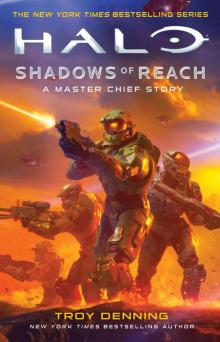 Shadows of Reach: A Master Chief Story
Shadows of Reach: A Master Chief Story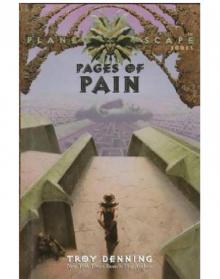 Pages of Pain p-1
Pages of Pain p-1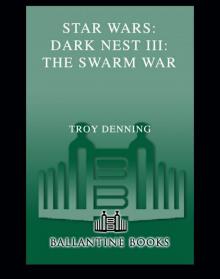 Star Wars 396 - The Dark Nest Trilogy III - The Swarm War
Star Wars 396 - The Dark Nest Trilogy III - The Swarm War Star Wars: Fate of the Jedi: Apocalypse
Star Wars: Fate of the Jedi: Apocalypse A Forest Apart
A Forest Apart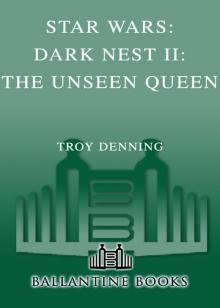 Star Wars: Dark Nest II: The Unseen Queen
Star Wars: Dark Nest II: The Unseen Queen Star Wars: A Forest Apart
Star Wars: A Forest Apart Tempest: Star Wars (Legacy of the Force) (Star Wars: Legacy of the Force)
Tempest: Star Wars (Legacy of the Force) (Star Wars: Legacy of the Force) Star by Star
Star by Star Crucible: Star Wars
Crucible: Star Wars Last Light
Last Light Invincible
Invincible Inferno
Inferno Star Wars - The Trouble With Squibs
Star Wars - The Trouble With Squibs Abyss
Abyss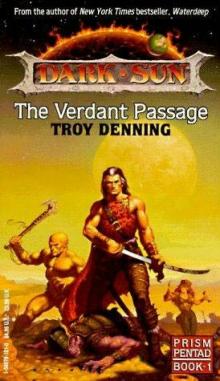 The Verdent Passage
The Verdent Passage Vortex: Star Wars (Fate of the Jedi) (Star Wars: Fate of the Jedi)
Vortex: Star Wars (Fate of the Jedi) (Star Wars: Fate of the Jedi)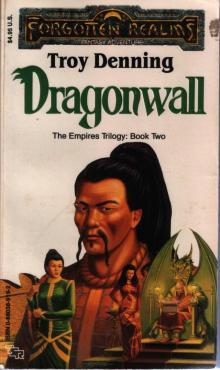 Dragonwall e-2
Dragonwall e-2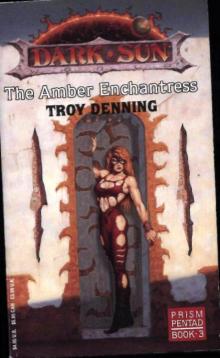 The Amber Enchantress
The Amber Enchantress Crucible
Crucible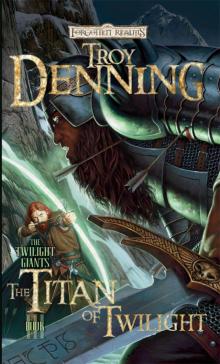 The Titan of Twilight
The Titan of Twilight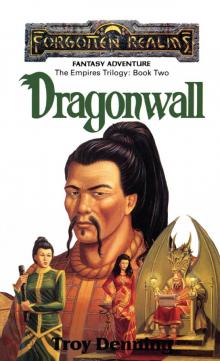 Dragonwall
Dragonwall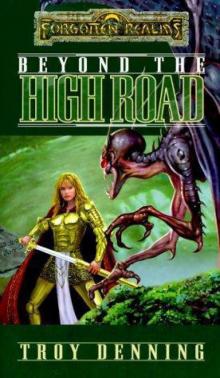 Beyond the High Road c-2
Beyond the High Road c-2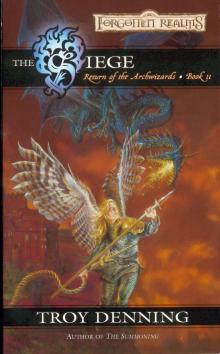 The Siege rota-2
The Siege rota-2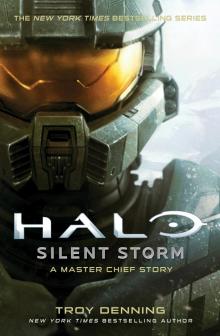 Silent Storm: A Master Chief Story
Silent Storm: A Master Chief Story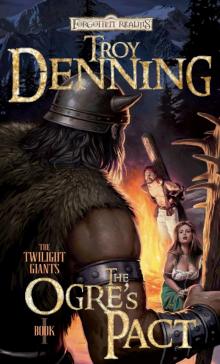 The Ogre's Pact
The Ogre's Pact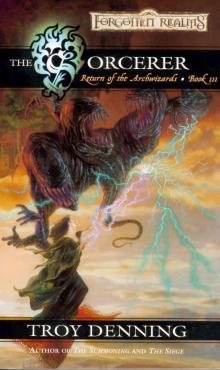 The Sorcerer rota-3
The Sorcerer rota-3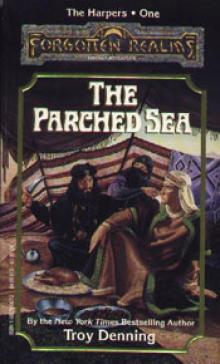 The Parched sea h-1
The Parched sea h-1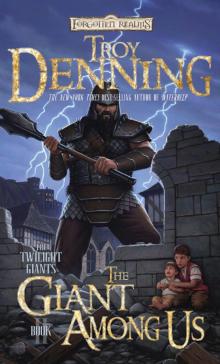 The Giant Among Us
The Giant Among Us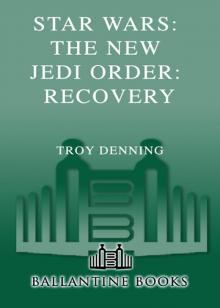 Recovery
Recovery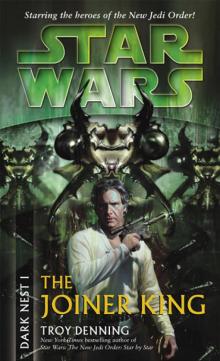 Star Wars: Dark Nest 1: The Joiner King
Star Wars: Dark Nest 1: The Joiner King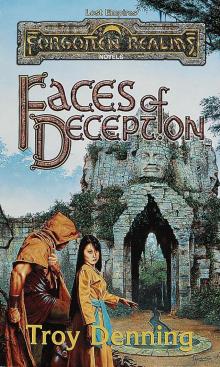 Faces of Deception le-2
Faces of Deception le-2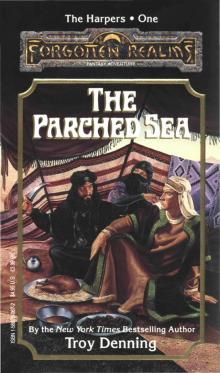 The Parched Sea
The Parched Sea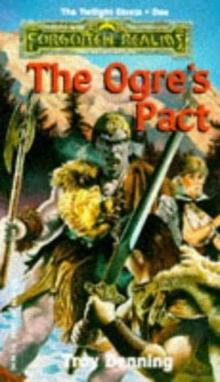 The Ogre's Pact зк-1
The Ogre's Pact зк-1 Apocalypse
Apocalypse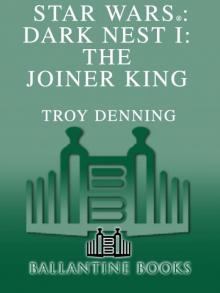 Star Wars®: Dark Nest I: The Joiner King
Star Wars®: Dark Nest I: The Joiner King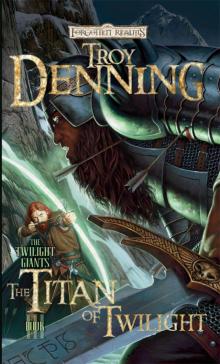 The Titan of Twilight ttg-3
The Titan of Twilight ttg-3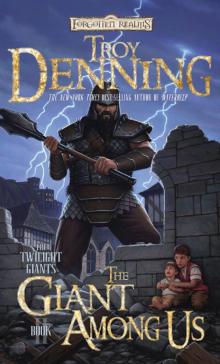 The Giant Among Us ttg-2
The Giant Among Us ttg-2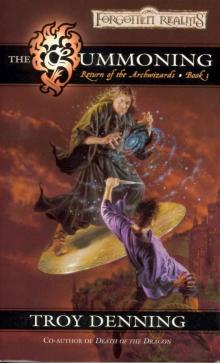 The Summoning rota-1
The Summoning rota-1 Tatooine Ghost
Tatooine Ghost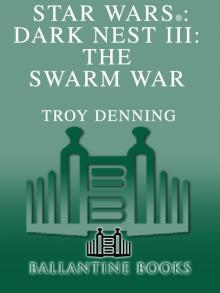 Star Wars®: Dark Nest III: The Swarm War
Star Wars®: Dark Nest III: The Swarm War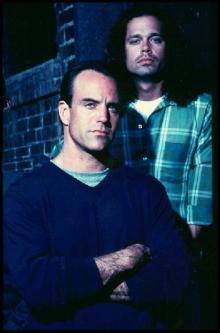 Retribution
Retribution A Forest Apart: Star Wars (Short Story)
A Forest Apart: Star Wars (Short Story)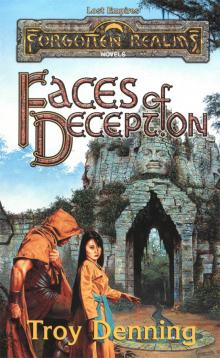 Faces of Deception
Faces of Deception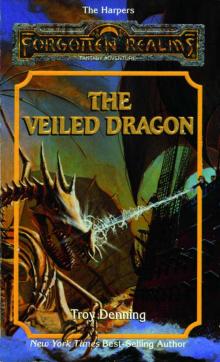 The Veiled Dragon h-12
The Veiled Dragon h-12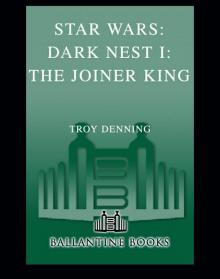 Star Wars 390 - The Dark Nest Trilogy I - The Joiner King
Star Wars 390 - The Dark Nest Trilogy I - The Joiner King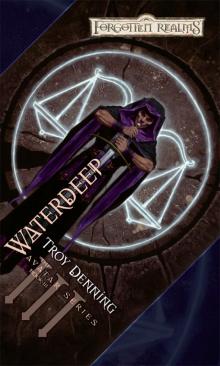 Waterdeep
Waterdeep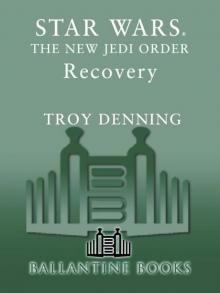 STAR WARS: NEW JEDI ORDER: RECOVERY
STAR WARS: NEW JEDI ORDER: RECOVERY